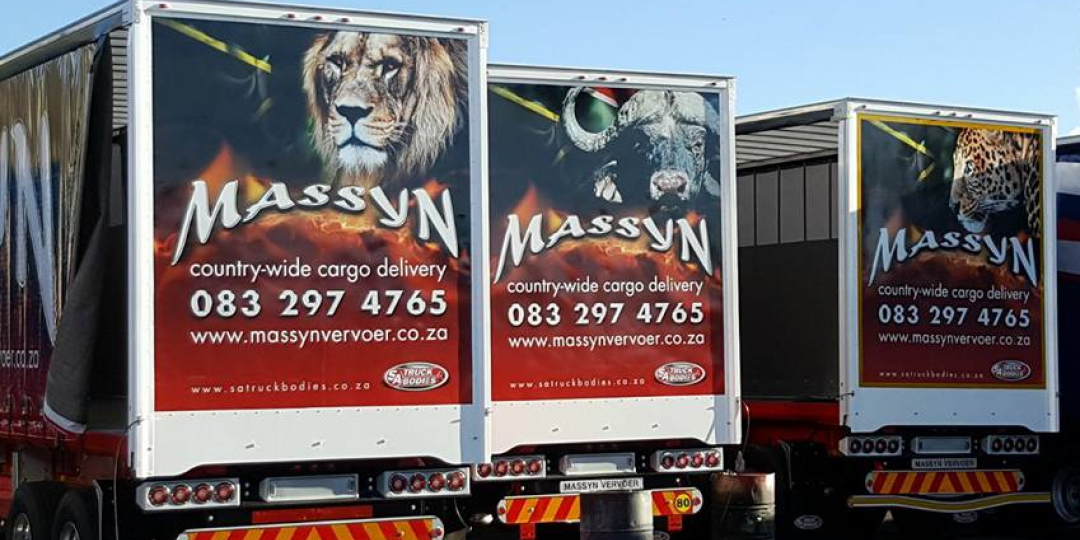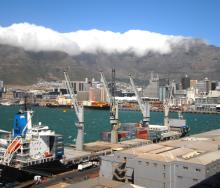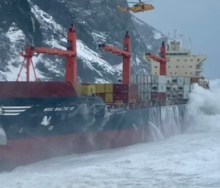The road freight sector in South Africa is still reeling from the news that one of the country’s stalwart transport companies, Massyn Vervoer, has decided to call it a day because of spiralling costs, challenging risks, and an increasingly hostile business environment.
Started by Frans Massyn senior 40 years ago, the transporter boasts a fleet of 120 trucks and employs 280 people responsible for moving general consumer goods across the country.
Although a recent circular distributed by the company announcing its decision to close its doors sent shockwaves through Massyn’s staff complement, a monumental effort has ensured that its staff are reabsorbed by the transport industry.
This was confirmed by Bettie Massyn, financial manager for the company, to Rapport journalist Antoinette Slabbert.
Initial speculation that the decision, taken on Human Rights’ Day, was due to liquidation, was refuted by Frans.
Bettie told Slabbert all creditors could rest assured that they would be paid.
Going into detail about why Massyn Vervoer is calling it quits, Frans said it was just not profitable anymore.
He said the cost of new trucks had increased 12%, tyres by 14%, and parts by 8%.
In addition, salaries now have to be adjusted by 5% and a further 2% in September.
Spiking steel costs of 80% have also pushed the price of trailers through the roof.
Going into more detail, Frans explained to Slabbert that a truck’s horse cost about R2.2 million, a trailer about R900 000, and that their loads were often worth about R4 million.
Add to that last year’s destructive riots in KwaZulu-Natal and Gauteng, a black swan event with disastrous ramifications for industry insurance.
Since last July, when rampaging rioters looted and burned their way through billions in logistical assets, unrest insurance has gone up by 1800%.
In addition, Frans said, clients were unwilling to accept a tariff increase of 2.4% yet took up to 120 days to pay.
The condition of the country’s roads, toll charges, and a fuel price pushing companies and people to the brink, means a trip to Cape Town costs R23 000, but clients are not prepared to pay more than R19 000.
He said a trip down to the Cape secured profit of R3000 for Massyn, but that theft from trucks often amounted to R30 000, and that not everything could be claimed for.
“The insurance costs will become unaffordable,” Frans said.
Elaborating on the expense of securing trucks against thieves, he added that it cost R90 000 to replace tarpaulin side covers, with a further R40 000 added to costs when rigging trucks with steel grids on the inside in an attempt to stop thieves from slicing through the sides.
The desperation of Massyn Vervoer to protect its property and the loads of its clients from thieves can also be seen in the spikes they apply to bumpers to prevent in-motion truck jumping.
Even lights on their rigs are protected with makeshift burglar-proofing plates to stop them from getting nicked.
The money thieves can make from copper wire theft, Frans added, meant they ripped out connecting wire between the cabin and trailers, costing transporters up to R18 000 to replace.
In a bid to circumvent this, the wiring has been changed and handbrakes have been shifted to the middle of a cabin to stop hijackers from jumping on cabins and forcing trucks to a standstill by pulling them up.
All considered, and with the second-hand vehicle market being extremely strong, Frans said he had decided to call it a day.
His sons, Frans jnr and Duan, would continue with ad hoc loads in Mpumalanga, Slabbert was told.
Responding to the news, independent road freight media publisher Patrick O’ Leary said: “Massyn Vervoer has not failed – South Africa has failed.”
He especially riled against obstinate clients.
“There is a huge warning here. What Massyn Vervoer has done serves as a heads-up to all in the industry – indeed to the country as a whole, and especially to those customers who are acting as ‘bully boys’, driving down rates to the point where best practice transporters are unable to survive.”













